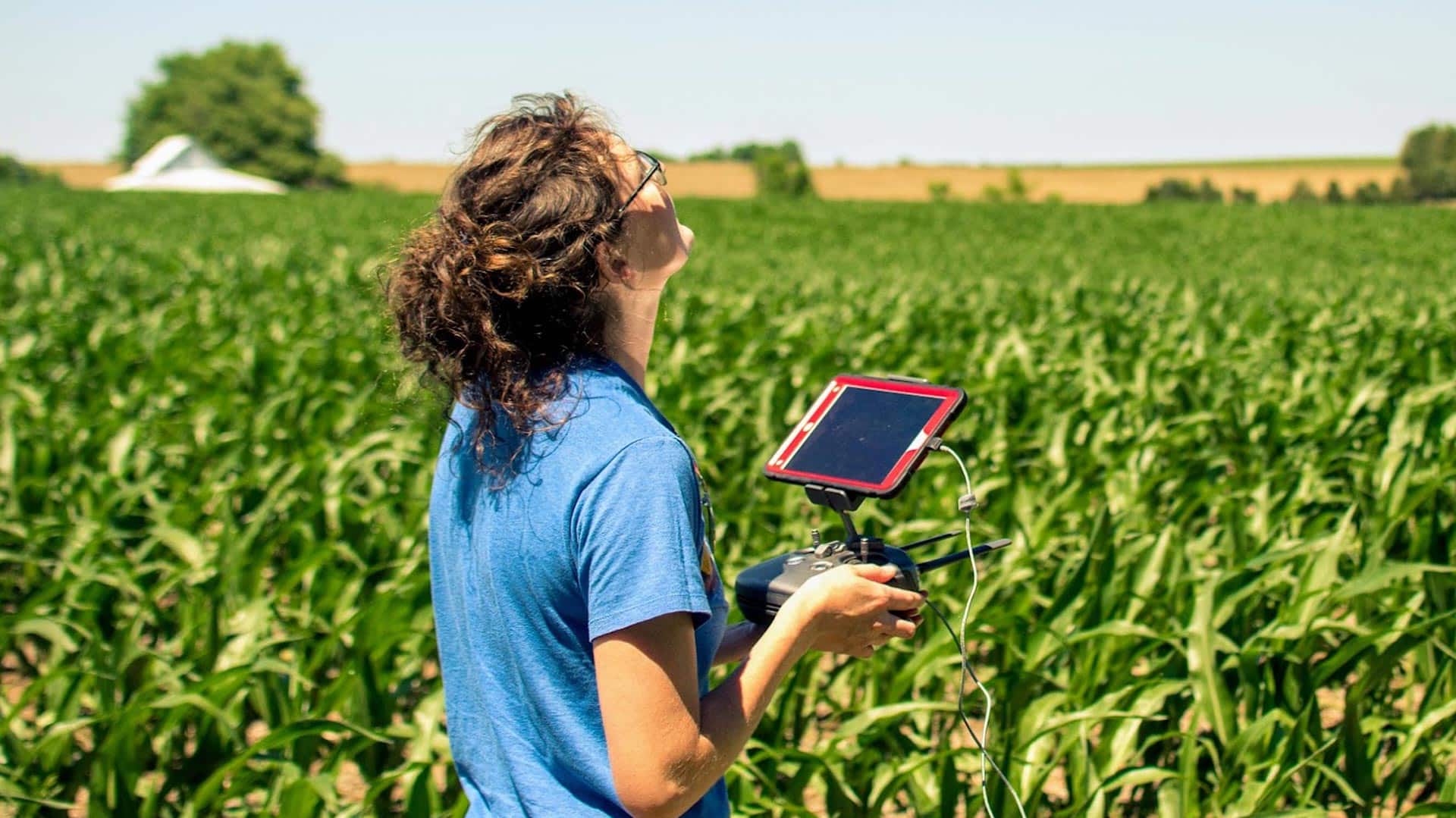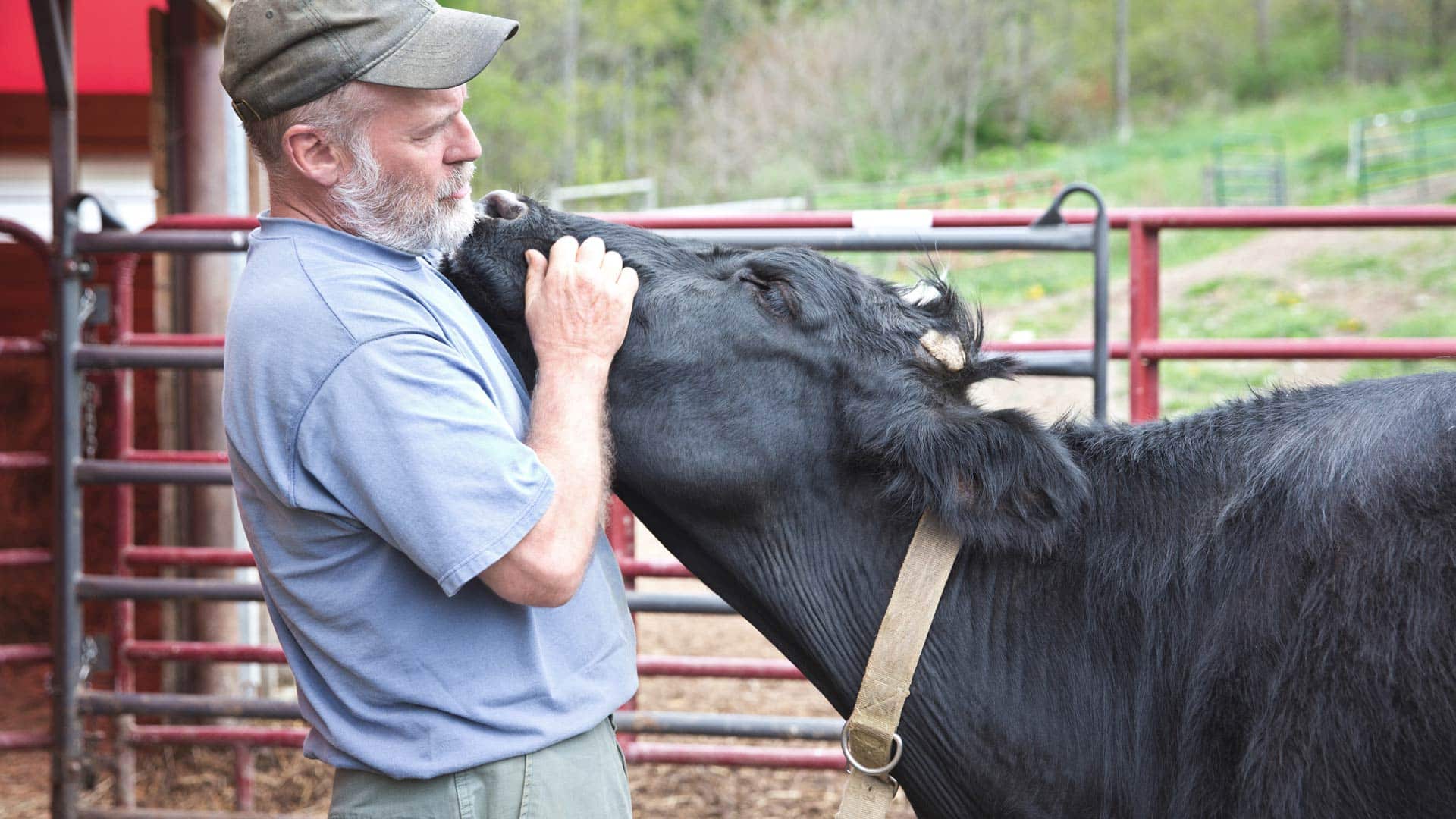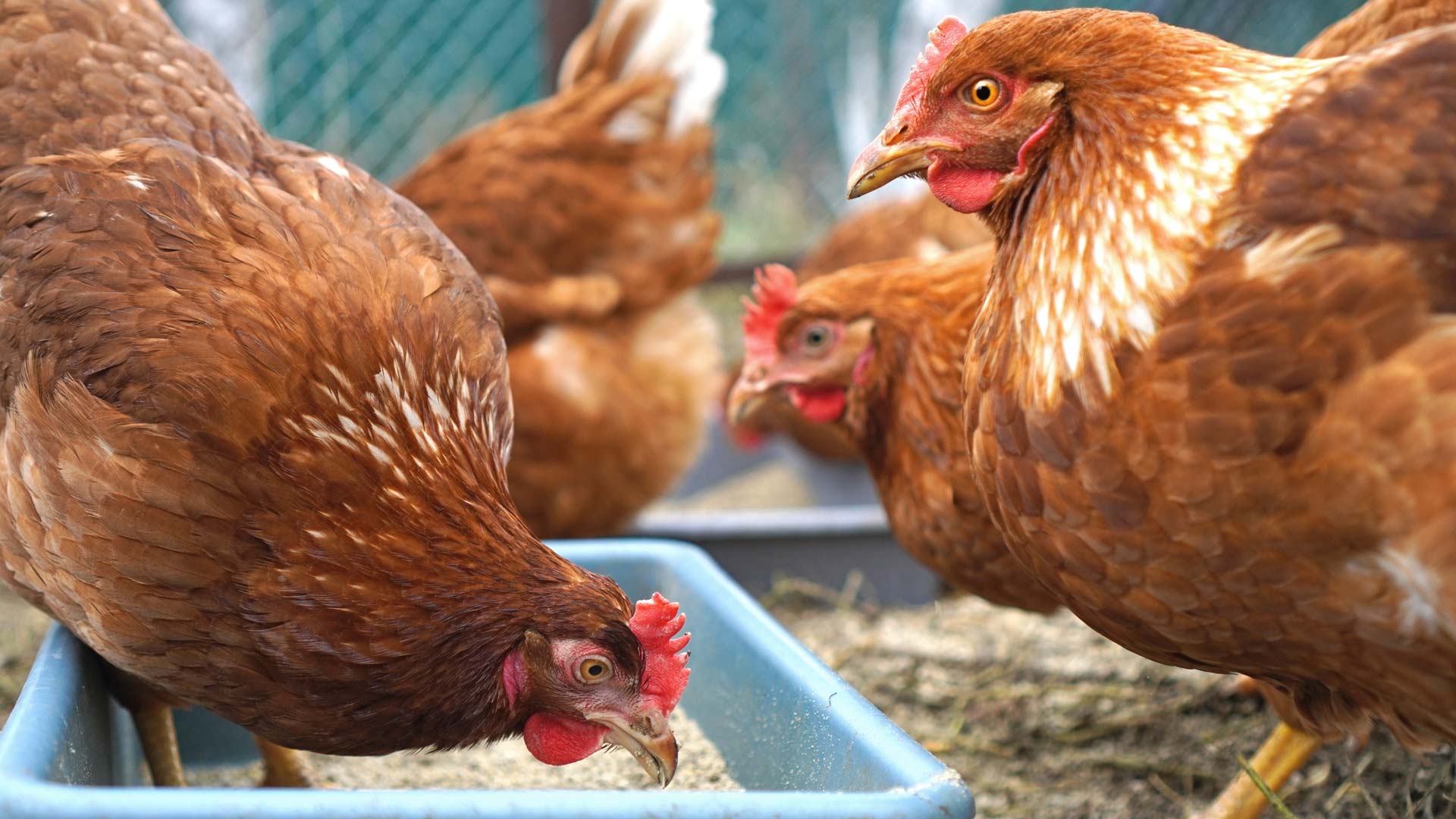Cattle have been eating corn for centuries. Not only does corn provide cattle with a good balance of proteins and carbohydrates, but its high levels of essential fatty acids make it a great choice for cattle to maintain their health.
Corn is also one of the most common and easily obtainable food sources for cattle, making it an ideal choice for farmers looking to feed their herds in an efficient and cost-effective way.
Even though some people think most cattle eat only grass, the fact is that many of the cattle in the United States also eat corn.
Even mother cows, who are most likely to spend much of their lives out in a pasture or on the range, sometimes need more nutrition than the grass Mother Nature provides. In the cold months when grass isn’t readily growing, corn provides the additional nutrition they need.
Do Cattle Eat Corn?
Cattle in Nebraska and around the world eat a variety of food, including corn and corn-based feeds. Corn is a nutritious source of energy for cattle and can be included as part of their diet. As ruminants— animals that have a stomach with four compartments that allows them to digest tough plants by regurgitation and rechewing— cattle can break down the complex carbohydrates in corn with ease and extract important nutrients such as proteins, minerals and vitamins that help keep them healthy.
Types of Corn Consumed by Cattle
- Kernels: Dried kernels of field corn — sometimes whole kernels, sometimes smashed or cracked — are a common food for cattle. Field corn kernels can be fed directly to the cattle or can be used as an ingredient in commercial cattle feeds.
- Sileage: A common food for cattle is sileage, which is made by harvesting the corn plant while it is still green. The whole corn plant is chopped up, pushed into a big pile and allowed to ferment under thick sheets of plastic for several months. The result is a highly digestible, high-energy product. For that reason, dairy cattle often eat corn sileage as part of their diet.
- Distillers Grains: A co-product of the ethanol-making process, distillers grains are a form of corn that is a good source of protein for cattle and other livestock and is often added to their diets.
Benefits of Feeding Corn to Cattle
Not only does corn provide valuable nutrition, but it also helps keep the cost of raising cattle and buying beef at the store more affordable. It takes significantly longer for a steer or heifer to reach market weight if it only eats grass and is never fed corn—which is called grass-finished beef. That extra time translates to an extra cost to the rancher, which is why grass-finished beef costs more at the grocery store.
Farmers speed up the growing process and keep costs down for consumers by feeding cattle a ration that includes corn during the last few months of their lives.
Often, farmers create their own feed recipes for their market cattle that include corn, chopped up hay and other corn-related products such as distillers grains and corn sileage in addition to vitamins and minerals.
Is Corn Good for Cattle?
Corn is not only healthy for cattle, but it can be an essential part of their diet. It provides many vitamins and minerals the animal needs to stay healthy. In fact, cattle can eat many different parts of the corn plant, with each providing a unique benefit to the cattle.
Can Cattle Digest Corn?
Cattle can digest corn. This makes corn an ideal food source for cattle as it allows ranchers to feed the cattle inexpensively and efficiently with crops they often already grow themselves, so the need to source feed is removed. In addition, corn is a low-fat source of carbohydrates, providing energy for cattle to stay healthy and productive.
Can Cattle Eat Whole Corn?
Cattle are herbivores, meaning they get their nutrition from plants. They can digest whole corn kernels, and also can consume smashed-up corn kernels.
This is why many farmers let their cattle out into the corn fields after harvest. The cattle walk through the fields and snack on the ears of corn that fell out of the combine or were missed during harvest.
Can Cows Eat Corn Cobs?
Cattle are able to eat corn cobs due to their digestive system. They have four chambers to their stomach that break down the corn cob, allowing them to consume the cob without any issues. Corn cobs are full of fiber and provide cattle with a source of energy as well as other essential nutrients.
In addition, cattle saliva contains enzymes that help to break down the corn cobs, making them easier to digest. This means that cattle can take advantage of the nutritional benefits found in corn cobs without having any negative digestive side effects.
Can Cattle Eat Corn Husks?
Cattle can digest the fibrous material in corn husks, which are the strips of the corn plant that encase and protect the ear of corn. Like hay, corn husks provide cattle with a source of roughage that aids in digestion. Since they are relatively low in calories compared to other feed grains, corn husks can be incorporated into cattle diets without adding too much energy.
Can Cattle Eat Corn Stalks?
Cattle are one of the many farm animals who enjoy eating corn stalks, which provide a source of fiber. Corn stalks also make excellent bedding — which is the material put inside buildings or shelters for cattle to lay down on. The dry, fluffy, cut-up cornstalks provide a comfortable and dry place for the animals to lay down and stay warm in winter.
Corn stalks used as bedding provide an additional benefit in that they can be returned to the field once they are dirty. The manure-covered bedding is typically spread on the field before planting in the spring or after corn farmers complete their harvest in the fall.
Stalks left in the field during the winter months also benefit the ground, because they increase soil moisture by trapping snow and reduce erosion through the strength of their roots. The benefits of having corn plants in the field after harvest is one reason often times why farmers don’t plow their fields.




